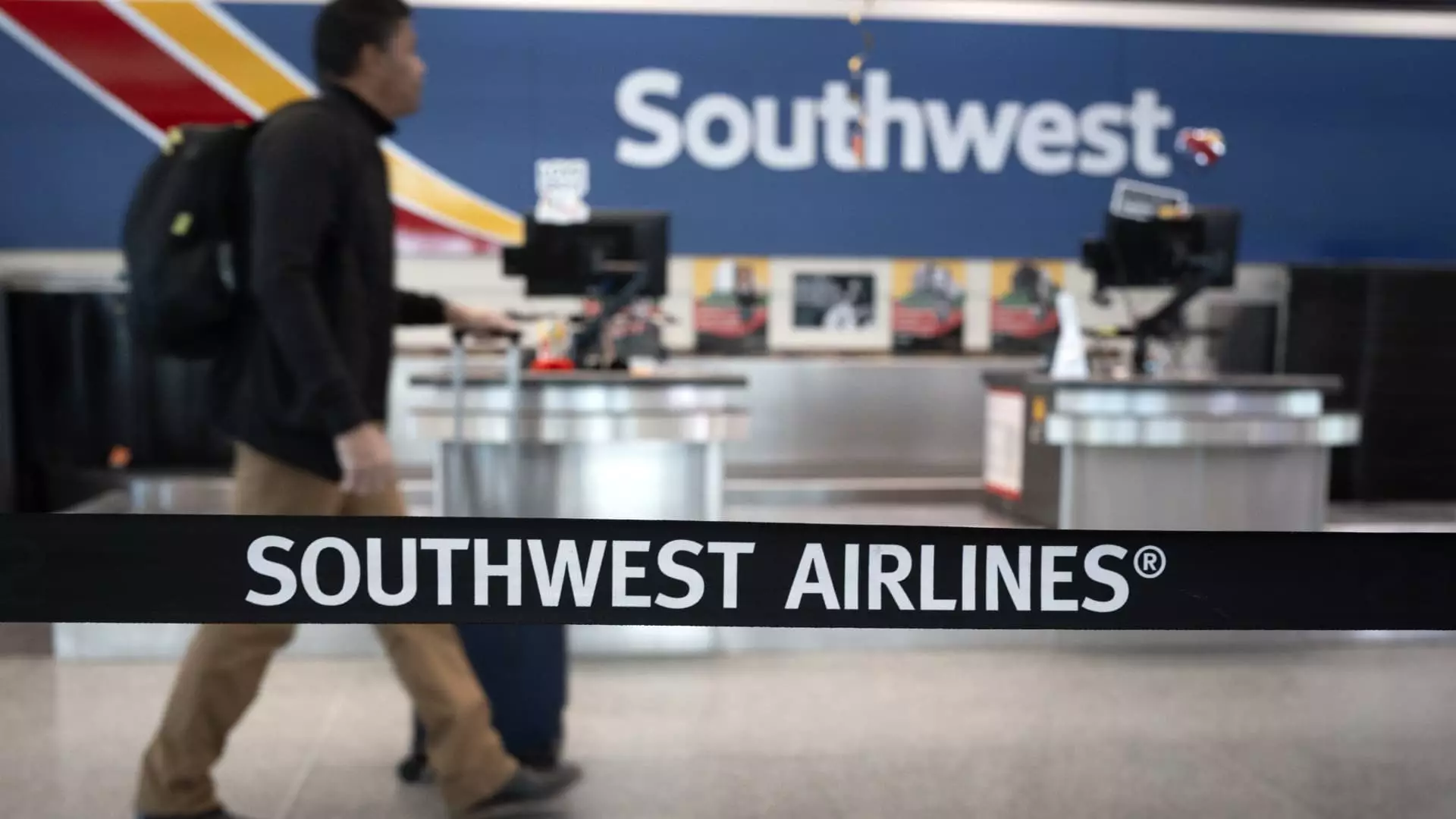In a move that has sent shockwaves through the airline industry and left many loyal customers wary, Southwest Airlines will begin charging for checked baggage starting Wednesday. This policy change marks the end of a 50-year tradition where two bags flew free, a hallmark of customer service that distinguished Southwest from its competitors. For decades, this feature not only won over travelers but also became a pivotal element of the airline’s marketing strategy, appealing to budget-conscious consumers. The question looms large: has the need for increased revenue trumped customer loyalty at Southwest?
The Financial Underbelly of Baggage Fees
The airline industry is notoriously competitive and financially strained, and in an era where operational costs are ever-increasing, revenue streams such as baggage fees have become a mainstay. In 2022, U.S. airlines reaped a staggering $7.3 billion from baggage claims, a figure that is impossible for any airline to ignore. Southwest’s executives, who have historically defended their no-baggage-fee stance, are now facing mounting pressure from stakeholders, including Elliott Investment Management, an activist investor that has taken a significant role in guiding the company’s direction.
While the fee structure remains somewhat unclear, competitive airlines typically charge about $35 to $40 for the first checked bag on domestic routes. The introduction of these fees by Southwest could provoke a significant shift in traveler attitudes, especially as customers become accustomed to the idea of added costs for what had once been a complimentary service. If not managed wisely, this could alienate loyal customers and tarnish the airline’s brand, which has thrived on the foundation of carefree flying for years.
Adapting to Market Trends
The announcement of new policies comes amid broader changes within Southwest’s operational model. The airline is also embracing a basic-economy fare, a product that has become a standard in the industry, allowing carriers to decrease costs while increasing flexibility for consumers willing to forego certain privileges. Such moves signify a tilt toward homogenization with competitors like Delta, American Airlines, and United Airlines, potentially erasing what once set Southwest apart in the marketplace.
As part of this transformation, Southwest is phasing out its long-standing open-seating model, which has been a part of the airline’s charm. Frequent flyers are often keenly aware of the strategic advantages that come with checking in early to grab prime seating. However, with the introduction of assigned seats starting in 2026, the brand is reshaping its identity, taking away some of the thrill—or dread—of boarding.
Unequal Impact on Different Flyers
While frequent fliers and loyal customers will still enjoy some privileges—such as complimentary checked bags through designated status tiers and co-branded credit cards—this layered approach raises the question of fairness among flyers. New basic-economy passengers will not only receive less favorable boarding positions, but their tickets will also have shorter validity periods for fare credits. This move could further establish a divide between budget travelers and those willing to invest more in their flying experience.
For travelers accustomed to Southwest’s previous offerings, this segmentation and the introduction of fees may come as a bitter pill to swallow. Many will have to rethink their pre-flight expectations and plans, especially those who prioritize the idea of traveling light with fewer costs.
Changing Plane Dynamics
Equally noteworthy is Southwest’s decision to enhance its inflight experience in conjunction with its policy changes. The airline is investing in larger overhead bins to accommodate an anticipated increase in carry-on luggage. This practical response indicates a keen awareness that while baggage fees may be applied, many travelers will still prioritize bringing essentials onboard rather than incurring additional charges.
Moreover, with the addition of mobile bag-tag printers aimed at easing customer processing at the gates, the airline is demonstrating a commitment to customer service—an essential trait that will need to shine through during this tumultuous period. However, the question remains whether these adjustments can alleviate the dissatisfaction sparked by the baggage fees.
Customer Sentiment and Future Implications
As the airline prepares to enact these policies, customer sentiments cling precariously on social media platforms where frustrations have been expressed in droves. Despite ongoing backlash, CEO Bob Jordan seems optimistic, asserting that initial responses have not impacted booking during this transitional phase. However, this assertion underscores a potential dissonance between executive optimism and customer loyalty.
In an industry where consumer preferences are shifting rapidly, a miscalculation could lead to a ripple effect that harms not just Southwest, but the broader airline ecosystem. Travelers are increasingly discerning, and whether or not they will adapt to the new normal largely hinges on how Southwest conducts itself moving forward. Their decisions will reverberate beyond mere revenue growth and could reshape the landscape of air travel in ways we have yet to fully understand.


Leave a Reply